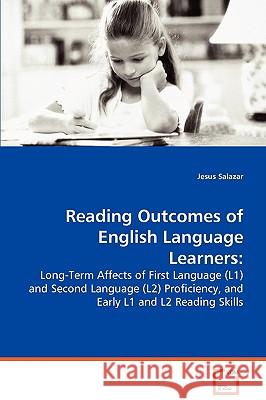Reading Outcomes of English Language Learners » książka
Reading Outcomes of English Language Learners
ISBN-13: 9783639057188 / Angielski / Miękka / 2008 / 136 str.
A key finding in the 1980s and 1990s is that children who develop good phonological awareness (PA) skills went on to become good readers. A second critical finding in the 1990s and this decade (2000s) is that children who develop strong oral language skills develop good PA skills, thus becoming good readers. This study examined the extent to which the early elementary (kindergarten and first grade) L1 and L2 oral language skills of Spanish-speaking English language learners predict reading performance at the end of elementary school (fifth grade). More specifically, the study investigated the joint longitudinal effects of Spanish-language and English-language proficiency on reading performance by the time students were ready to enter the middle school grades. The results demonstrate that combined L1 and L2 early language skills, for students in both bilingual education and English immersion programs, predicted fifth-grade reading comprehension skills just as well as did early decoding skills. This study breaks new ground by examining the long-term effect of ELL students? oral language proficiency, in both their first language (Spanish L1) and second language (English L2), on English reading achievement. This analysis will be useful to educators who teach English language learners, and to policy makers who must decide how best to instruct these students.











